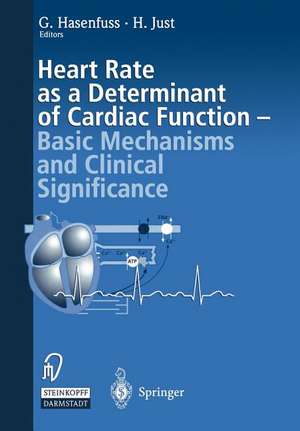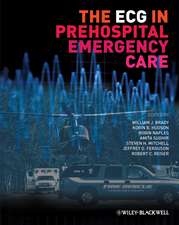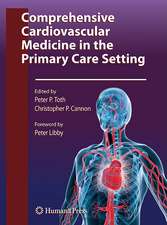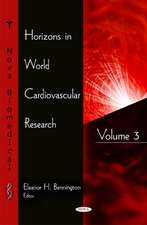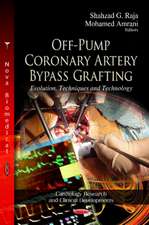Heart rate as a determinant of cardiac function: Basic mechanisms and clinical significance
Editat de G. Hasenfuss, H. Justen Limba Engleză Paperback – 10 mar 2012
Preț: 717.56 lei
Preț vechi: 755.33 lei
-5% Nou
Puncte Express: 1076
Preț estimativ în valută:
137.30€ • 143.08$ • 113.69£
137.30€ • 143.08$ • 113.69£
Carte tipărită la comandă
Livrare economică 03-17 aprilie
Preluare comenzi: 021 569.72.76
Specificații
ISBN-13: 9783642470721
ISBN-10: 3642470726
Pagini: 288
Ilustrații: VIII, 275 p.
Dimensiuni: 170 x 244 x 17 mm
Greutate: 0.46 kg
Ediția:Softcover reprint of the original 1st ed. 2000
Editura: Steinkopff
Colecția Steinkopff
Locul publicării:Heidelberg, Germany
ISBN-10: 3642470726
Pagini: 288
Ilustrații: VIII, 275 p.
Dimensiuni: 170 x 244 x 17 mm
Greutate: 0.46 kg
Ediția:Softcover reprint of the original 1st ed. 2000
Editura: Steinkopff
Colecția Steinkopff
Locul publicării:Heidelberg, Germany
Public țintă
Professional/practitionerCuprins
Regulation of heart rate.- Physiology and pathophysiology of baroreceptor function and neuro-hormonal abnormalities in heart failure.- Heart rate and myocardial function.- A mechanistic analysis of the force-frequency relation in non-failing and progressively failing human myocardium.- Post-rest contraction amplitude in myocytes from failing human ventricle.- Influence of SR Ca2+-ATPase and Na+-Ca2+-exchanger on the force-frequency relation.- Force-frequency relations in nonfailing and failing animal myocardium.- Influence of stimulation frequency on subcellular systems.- Heart rate as a determinant of L-type Ca2+ channel activity: Mechanisms and implication in force-frequency relation.- Electrophysiological aspects of changes in heart rate.- Influence of Forskolin on the force-frequency behavior in nonfailing and end-stage failing human myocardium.- Modulation of the force-frequency relation.- Effect of inotropic interventions on the force-frequency relation in the human heart.- Effects of cytokines and nitric oxide on myocardial E-C coupling.- Relevance of heart rate on hemodynamics and energetic.- Adrenergic regulation on the force-frequency effect.- Influence of left ventricular pressures and heart rate on myocardial high-energy phosphate metabolism.- Force-frequency relation in patients with left ventricular hypertrophy and failure.- Prognostic relevance of heart rate.- Heart rate variability and electrical stability.- Rate-dependence of antiarrhythmic and proarrhythmic properties of class I and class III antiarrhythmic drugs.- Autonomic control of heart rate: Pharmacological and nonpharmacological modulation.- Therapeutic relevance of heart rate control.- Left ventricular restoring forces: Modulation by heart rate and contractility.- Beta-blocker treatment in heart failure. Role of heart rate reduction.- Digitalis therapy — Relevance of heart rate reduction.- ?-Blocker treatment of chronic heart failure with special regard to Carvedilol.
